Well, thank you. First of all, you don’t have my name. I am sorry. I am using the Ali’s account because I have to take the microphones and all this. But some know me.
So, aftermath. In hindsight: that’s what my title meant. I should have suggested a simpler title, Aftermath.
I would like to briefly discuss two points with you that relate to the psychoanalyst work.
Like other colleagues before me, I’m attentive to what circulates between us today. Attentive to our work transference, to our work that passes through another language, through loss and discovery.
Our colleague Martine Lerude, a French psychoanalyst who worked for a long time in Germany, reminded us a few years ago that the exercise of translation always requires the support of a third language. Sometimes this involves an etymology in Latin or Greek, for example.
But it’s interesting for us to realize that around our work table this Saturday, for many, English is not our mother tongue. This exercise displaces us.
Each language borders the Real differently.
Yorgos Dimitriadis, I believe, recalls Freud’s Unheimliche, that which is familiar and foreign in the same time. For example, a French colleague speaking English to another French colleague. Are we addressing the same things? Do we hear the same things? Not sure.
So, my first point refers to the difference between “savoir” and “connaissance”, which Lacan addresses in this seminar. I suggest translating “savoir” as know-how. And I will translate “connaissance” as knowledge, as a sum of things learned, authoritative statements.
The analyst knows something about the real. He or she knows the effects of an act and he lends himself to it. He agrees to play this game, as Lorena Strunk told us, within this framework, the analytic discourse. He lends his body.
I don’t know in which seminar, Lacan said, for the pass (“la passe”), the jury to the pass is like actors’ work, you know, you have to lend, you have to give your body to tell someone’s experience.
And what about the analytic teaching? I think it’s about transmitting this know-how. This is why the analyst is not on the side of the artist, but on the side of the craftsman. I guess we could say it like this in English: craftsman.
Lacan says that an act has consequences, and the university teaching is without consequences for Lacan. It’s maybe a Lacanian sense of humor, because we know university is transmitting things, but he says it like this.
My second point will be the difference between act and doing.
I guess Stéphane Thibierge was talking about, was hesitating between these two words, doing or making, and it’s a real question, I don’t want to cut and choose one because the two versions are interesting, but I’ll take doing.
So, the difference between act and doing. For Lacan, the act is not the action, nor is it the motor function. This is what we find in the four discourses.
The agent, on the left side, performs an act. And what is expected on the right side is a doing. In French, “act”, and the other side, “faire”, doing.
This seminar by Lacan guides us in identifying what we can call an act for the analyst. Lacan opens his work by speaking of a failed act. An act that seems to miss something. And in doing so, Lacan highlights a structure, that of language and the determination of the unconscious.
In this remark on Lacan’s part, that would have interpretative value, is the analyst the product of a failed act, for example? Curiously, if there is a loss, it seems to be on the analyst’s side.
Recall Freud’s work. He saw many patients who did not speak German or who spoke broken German. The loss in translation was already present at the birth of psychoanalysis. It has never been a practice of understanding. Lacan, moreover, invites us to be wary of understanding.
I conclude by recalling – I conclude because I want to have time, that we have time to discuss in the chat or the Zoom room, have time to address questions for everybody, every colleague. So, I conclude by recalling that analytic discourse involves this ethical issue. It is the only one of the four discourses whose agent falls. It embodies the falling object, embodies the body.
This remark is adversary to each of us. What drives us to occupy this place for another, for a patient? It’s a real question. I guess we all have different answers for that. Why? Why do we accept to occupy this place for another? I can say in the seminar that an act always has consequences.
We should regularly ask ourselves this question in our daily lives, but also as analysts.
The difficulty is that our discipline responds to a particular temporality, that of the aftermath, Nachträglich in German. A patient who tells a story, post-traumatic story sometimes, always does so after the fact, as Piera Aulagnier reminded us. In Lacan’s seminars, Piera Aulagnier talked about this aftermath, this story the patient can talk only aftermath.
And like Stéphane Thibierge said a few minutes ago, the analysts will only be able to verify the effects of this act after the fact.
So, I will stop here, but I will be pleased talk about these points with you, Alexis Chiari, Julien Alliot, and maybe others after all colleagues will be finished.
Thank you very much
Le seminaire de Stéphane Thibierge de ce soir est reporté au mercredi 18 février à 21h !